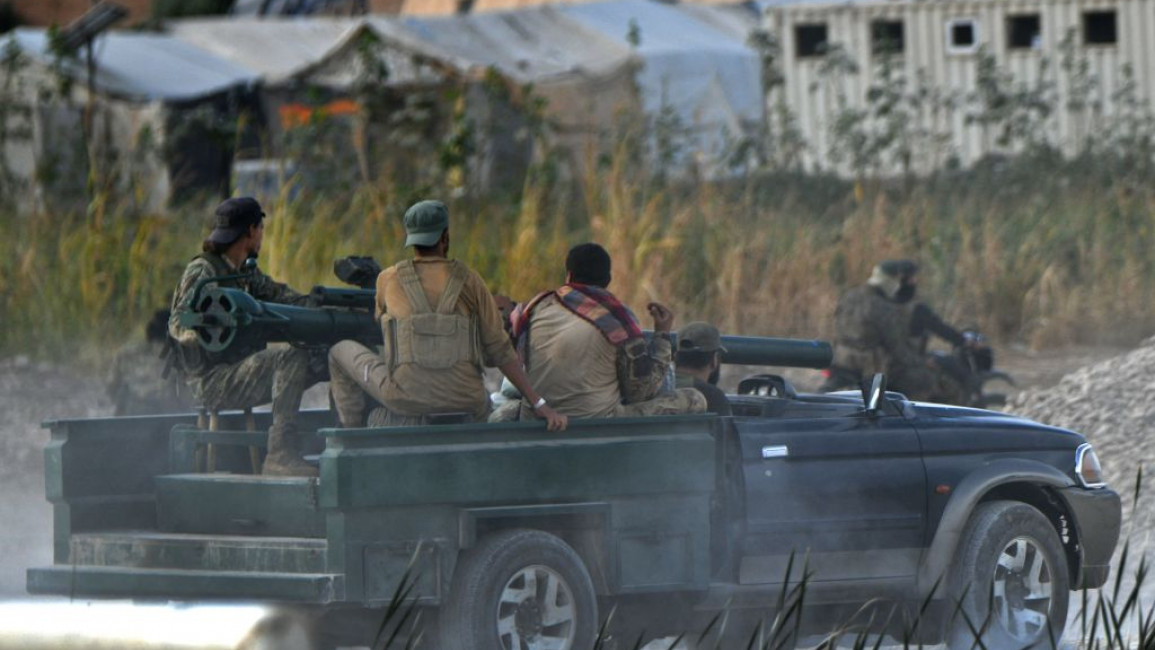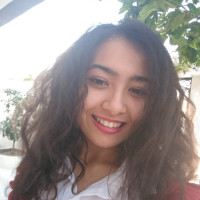
HTS in Afrin: Threats and prospects for civil society
In mid-October, Hay’at Tahrir al-Sham (HTS) expanded northwards into the Afrin region that had been controlled by factions of the Syrian National Army (SNA) since March 2018. Following its quick incursion, HTS withdrew most of its artillery units from Afrin as per a Turkey-brokered agreement with the SNA’s Third Legion.
However, thanks to its close relationships with some SNA factions, HTS still maintains a military presence in Afrin and is trying to take part in the administration of the region through reinforcing the authority and functions of its affiliated Salvation Government. While this definitely comes as bad news to civil and pro-democracy activists given HTS’ hegemonic tendencies, there is a glimpse of hope, but serious concerted efforts are needed to turn the recent developments into an opportunity.
In order to understand the reasons which underlie these recent developments, we should take a step back and consider the nature of HTS, what it aspires to achieve, and what methods it tends to employ. HTS, like its predecessor al-Nusra Front, is a Salafi-Jihadist organisation which, at its core, remains an armed and highly ideological formation. This characterisation entails that there are limits to HTS’ pragmatism and moderation.
''Ideally, HTS must be pushed back militarily and kept away from the civil management of areas in the north. Realistically, however, HTS should be pressured to protect the rights of journalists and civil activists and tackle the issue of extremism seriously, and not as a negotiation card.''
It might be true that HTS’ top tier leaders seek Turkey’s approval of their influence and would prefer to win the support of local population, but at the end of the day they lead a military organisation that owes its power and dominance to its military achievements, especially in the early stages of the war in Syria. Additionally, much of HTS’ support, particularly among the ranks of influential Islamist figures in the northwest, stems from it being ostensibly a committed Salafi group that aims to strictly apply the rule of Sharia.
It is therefore unlikely that HTS will soon replace its skin entirely, and voluntarily choose to become a tamed political player. What is more likely, however, is that it will keep flexing its muscles and taking advantage of the weakness of the SNA, in an attempt to send signals to local citizens and external players that it is the only party capable of stabilising a volatile region and providing a proper level of governance.
Administratively, HTS’ leaders say that their organisation is solely responsible for military and security matters and that it does not interfere in the work of the Salvation Government. But the situation in Idlib indicates that all sectors are subject to HTS and any talk about tolerance and protecting freedoms in its areas is sheer propaganda.
HTS does not directly manage the daily lives of the population but controls vital and strategic sectors such as banks and border crossings and imposes its outlook and ideology on society through controlling the education sector, religious institutions, and the media.
HTS’ aggressive expansion in the north is a blow to civil society organisations for several reasons. First, it is designated a Terrorist Organisation by the US Foreign Office which will make it more difficult for international governments and organisations to provide training and financial support to local enterprises. Second, contrary to HTS claims, the recent raid generates more instability in the north.
The emergence of enabling environment and effective associational life in the north needs a certain level of stability and freedom as prerequisites for attracting activists, entrepreneurs, and investors. The frequently occurring military confrontations will therefore diminish the prospects of a viable civil society.
Finally, the provision of humanitarian aid and external collaboration with local civil projects in areas controlled and managed by HTS will constitute acceptance of HTS’ rule and tacit endorsement of its hegemonic approach.
Many observers have long noted that the Turkish-backed SNA is not actually as homogeneous as Turkey would like it to be and appear. Even though, the recent developments are alarming in the sense that they show an unprecedented level of ideological and organisational incoherence amongst factions of the SNA.
The fact that certain factions of the SNA, including al-Hamza Division (known locally as al-Hamzat), provided vital help to HTS enabling the latter to expel another SNA faction, i.e., the powerful Third Legion and its backbone al-Shamiyah Front, raises questions about the efficiency of the SNA and whether it can survive, even in the short term. With that in mind, a sudden disintegration of the SNA will necessarily turn into an open military confrontation that is not guaranteed to remain confined to the northern countryside of Aleppo.
Such a scenario plays into the hands of HTS for it is incomparably stronger than other factions, has already established a foothold in the strategic Afrin region, and will present itself to Turkey as the only competent ally.
Reflecting on the recent developments, it may be troubling for some to know that in the past, HTS’ ally the al-Hamza Division, received support from the US and Turkey . But, this may also be perceived as an opportunity to exert regional and international pressures on HTS and possibly propel it to take meaningful steps in its alleged moderation path.
Ideally, HTS must be pushed back militarily and kept away from the civil management of areas in the north. Realistically, however, HTS should be pressured to protect the rights of journalists and civil activists and tackle the issue of extremism seriously, and not as a negotiation card.
Since HTS is still on the lists of Terrorist Organisations, it is illegal for any local or international players to establish direct communication and negotiation channels with it. Hence third parties can assume an intermediary role in the future, especially if HTS managed to form and effectively lead a new military coalition in the northwest which is gradually becoming a possibility.
Dr Azzam Al Kassir is a Syrian political scientist based in London. He holds a PhD in politics from Birkbeck and a master’s degree (with Distinction) in Middle East Politics from Exeter. His research interests are centred on modern political Islamic thought and radical Islamism.
Follow him on Twitter: @AzzamAlkassir
Have questions or comments? Email us at: editorial-english@newarab.com
Opinions expressed in this article remain those of the author and do not necessarily represent those of The New Arab, its editorial board or staff.



